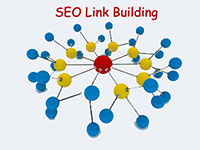LOCAL MARKETING & YOUR WEBSITE
…Taking the next stepBy: Chris Bachman | August 29, 2016 | Print
Every year I help a couple of dozen clients get a new website launched and in the process help these clients move from what is often a broken or poorly performing website to one which is up to date, well designed and tuned to perform. The client comes away happy with their spanking new website and I get a nice blast of satisfaction knowing I have helped another business person get back on the road to success.
Unfortunately, that is where the story often ends. And it shouldn’t. You see, while getting your website presence in order is a great foundational first step to online success, stopping there is like thinking the race is run because you left the starting gate. Let me clarify my concern for you.
 You have this great new website and then you do little if nothing to promote it. Sure, search engines like swanky new websites which are all up to date with current coding and such, and you will often get a bump in rankings from that. However, search engines also like it when your website is popular with others, as evidenced by things like links from other, relevant websites, lots of helpful and informative pages which answer the questions visitors were searching for, as well as quality content which invites them to spend time browsing as evidenced by increased on-site and on-page time.
You have this great new website and then you do little if nothing to promote it. Sure, search engines like swanky new websites which are all up to date with current coding and such, and you will often get a bump in rankings from that. However, search engines also like it when your website is popular with others, as evidenced by things like links from other, relevant websites, lots of helpful and informative pages which answer the questions visitors were searching for, as well as quality content which invites them to spend time browsing as evidenced by increased on-site and on-page time.
The Problem
Getting people to notice your site, make the effort to visit your site, and then having them spend time on your site is work; work which pays off handsomely for those who undertake it. But, as mentioned earlier, most of my clients see the online aspect of their business as beginning and ending with the creation of a website. Website is done? Whew! Great, time to move on…..
This is like creating a beautiful bricks and mortar store with an attractive façade, wonderful products inside and then forgetting to staff it, turn on the lights or put a sign out front. God forbid you should actually market it…. Yet, this is what client after client does. Why, I wonder?
Are they afraid they will get duped by some marketing pro into spending more money? Do they think marketing is just a gimmick? Maybe they just don’t know where to turn to get good advice that they can trust while not feeling pressured. Yet, pressure is what they feel when the sales aren’t happening the way they hoped, when people aren’t overwhelming their website with traffic, their phone isn’t ringing off the hook with orders. It is time for them to recognize the problem, identify some solutions and then take control.
There are any number of straightforward steps a business owner can take to enhance traffic to their site and subsequently to their business. As an entrepreneur first and a web developer second, I know a lot more about marketing then most web guys and I love sharing that knowledge with my clients. Most of my clients have come to understand this is how I operate and appreciate it, or so I hope. In the end, the choice is theirs, of course, but I still haven’t gotten used watching clients literally turn away business because they won’t take the next step. It hurts them and it hurts me to watch it.
The Solutions
There are a number of easy to implement next steps which I recommend for clients depending on their particular circumstances. Here are just a few to get you thinking.
Whitepaper: A whitepaper generally refers to anything containing copy which you offer for free on your website. This can be a professional paper on a topic, an EBook, even a simple “top 10 Tips…” list. The idea is to target it to the audience profile of the site visitors you would like to attract as clients. Offer it for free and when they go to download it they need to enter their name and email…then the download begins. Everyone has seen these, is familiar with them, have likely downloaded some and feels ok doing it. The premise is simple, offer something of value to the visitor in exchange for their contact information. When they act on the offer then you gain their contact information in return. Both sides win. Of course, you should have a plan to follow up with these new leads. Include them in a newsletter, add them into a drip campaign or reach out with a special offer…
Local Directories: There are hundreds of these but probably only 10 or 20 which are suitable for your business and market. The big ones you are likely familiar with are Yelp, Manta, Merchant Circle, etc. but there are plenty more. The up side to getting your business listed in these is that more people find your business. And, those profile pages show up in the search results; which means more visibility and more people visiting your website. The downside is that the directories have to be set up properly and cleaned from the master aggregator directories down. That takes time; our firm spends 15-20 hours per client spread over 2 months to get it cleaned up. And, if it isn’t done perfectly, all your work will be wiped out in a year.
 Link Building: Links to your site from other sites, aka “back links”, are a very important part of helping your site rank well and building traffic. Think of links to your site as votes of confidence, votes which Google especially likes to tally up and add to your reputation score. The more links to your site the better you rank, especially with Google.
Link Building: Links to your site from other sites, aka “back links”, are a very important part of helping your site rank well and building traffic. Think of links to your site as votes of confidence, votes which Google especially likes to tally up and add to your reputation score. The more links to your site the better you rank, especially with Google.
But there is a caveat, and that is Quality over Quantity. The higher the quality of the site linking to you the more it counts, and the more relevant the site is to yours the more credibility is carries. It follows that a link to your Home construction website from Jimmy’s Sandwich Emporium will probably not be as valuable as a link from the US Home Builders Association.
Many links require a lot of work to uncover or develop and there are companies who charge big bucks to identify these opportunities and bring them to fruition. On the other hand, there are often a bunch of easier opportunities, which I refer to as Low Hanging Links, which are relatively easy for a business person to identify and attract without too much effort. Refer to my article, Low Hanging Links for ideas on this.
Content: Content counts…a lot. Quality content counts even more. If your website has lots of good quality, helpful content, content which answers questions and could be viewed as a resource, several good things begin to happen.
The first is that by having more topic specific pages you will be able to rank for more search terms and attract more traffic. The next thing which happens is that people visiting your site find helpful, informative information which causes them to not only stay on your site longer but to bookmark it for returning later. Another thing which happens is that this information is shared with others and that creates links to your website which, as pointed out above, are very helpful with ranking. Perhaps the most important thing which happens as a result of all that superb content on your website is that the search engines notice not only the presence of the content but also the aforementioned activity surrounding it and as a result rank your website higher; higher than those without all that nice content.
Think of it like fishing. You are sitting in a fishing boat and you have a choice of casting one line in the water, using one type of bait, or you can cast twenty lines in the water using twenty kinds of bait, which method catches more fish?
Btw – 300 words is the minimum I suggest for any page to have a decent chance of ranking. For example, the article here will top 2000 words and will carry some weight with the search engines over time.
 Google My Business: Google My Business (GMB) is a no-brainer which everyone should do. Registering your business with Google and completing the profile information requested is pretty painless and in the end sends a good strong signal to Google about your business. Google uses this information in any number of ways, from expanded profiles on search pages to allowing inclusion in its Snack Pack to placing you on Google Maps, all of which is beneficial to you.
Google My Business: Google My Business (GMB) is a no-brainer which everyone should do. Registering your business with Google and completing the profile information requested is pretty painless and in the end sends a good strong signal to Google about your business. Google uses this information in any number of ways, from expanded profiles on search pages to allowing inclusion in its Snack Pack to placing you on Google Maps, all of which is beneficial to you.
These represent but a few of the steps you can take to pump life into your website. They can all be done without outside help if you are willing to spend some time learning and implementing. However, if you are like most business owners, you may find yourself wanting to outsource it to someone who does it for a living. That choice is often the most effective and efficient and while it does cost money, the savings in time can easily make up for any expenditure.
Cost?
So what does it cost to outsource this sort of work? How do you know what things should cost? As in much of business, it really depends on your goals and your budget. Here are some rough guidelines, each circumstance will be different.
Whitepaper: 2 hours to create the whitepaper, 1.5 to set things up with your email program, 1 hour to implement on website.
 Local Directories: This is tedious work if done correctly. You can opt for an automated system like Yext or something similar but we have found that automating information across multiple platforms produces an end result which leaves a lot to be desired. And, going with a third party platform means you have to stay with that platform forever or, if you discontinue their service, your listings vanish. (Yext claims this is no longer the case, but…you will have to reclaim everything, which is the same as starting from scratch). Automated directory services typically run $400 - $500 initially and then $300-$400 per year to maintain. However, if you have this work done manually, you can expect to pay a little more but the quality of the results will usually be much better.
Local Directories: This is tedious work if done correctly. You can opt for an automated system like Yext or something similar but we have found that automating information across multiple platforms produces an end result which leaves a lot to be desired. And, going with a third party platform means you have to stay with that platform forever or, if you discontinue their service, your listings vanish. (Yext claims this is no longer the case, but…you will have to reclaim everything, which is the same as starting from scratch). Automated directory services typically run $400 - $500 initially and then $300-$400 per year to maintain. However, if you have this work done manually, you can expect to pay a little more but the quality of the results will usually be much better.
Link Building: Charging by the number of links obtained is not a good way to price link building. There are too many ways to generate a ton a bad, worthless links which look good but do little to help you. High quality links take time and money. You may find a small firm who will work on it for a few hundred dollars per month but most professional link building firms will start at $1000 per month and go up from there. Your best bet is to locate reputable, trustworthy firms who will tell you like it is, not the way you want to hear it.
Content: Content creation can run from 1-5 hours per page and then you have the cost of adding it to your site. Copy writers can run from $35/hr to $75/hr depending on experience and hunger. Be sure to look at examples of their work and see it their style of writing resonates with you. And, most importantly, do they have experience writing for websites. Website writing is entirely different from other writing.
Google My Business: Figure a couple hours to gather the information and get everything set up properly.
Local Search Marketing Packages: There are a lot of companies who offer packages covering some or all of these suggestions. Most of these local search packages are offered on a monthly basis as it takes time to implement these suggestions properly. Many of these companies are good, reputable firms. Many are not. Do you due-diligence, check references, compare services …this is one area where it pays to brush up on the topic before evaluating the suitors.
If you are a business owner and are feeling stuck, find yourself wondering if business couldn’t be a bit better, if your website might be able to rank higher, you really should investigate the possibilities. Find a marketing pro to talk to, in fact, talk with several, the independents are often less expensive than big firms, many will chat with you for free to brainstorm some ideas, I know I do.
Remember, success isn’t a place, it is a journey. Explore the options, many aren’t that expensive, then select a consultant you trust, work with them to make a plan and budget you can stick to and then…take the next step.

Chris Bachman is a business consultant and Project Director at ProClassWebDesign.com as well as a self confessed serial entrepreneur. He is a regular writer on topics pertaining to marketing, SEO, and business websites as well as an instructor and independent consultant. Learn more about Chris Bachman on Google+ or LinkedIn.
Call NOW !
Park City: (435) 631 . 2595 | Salt Lake City: (801) 214 . 8824